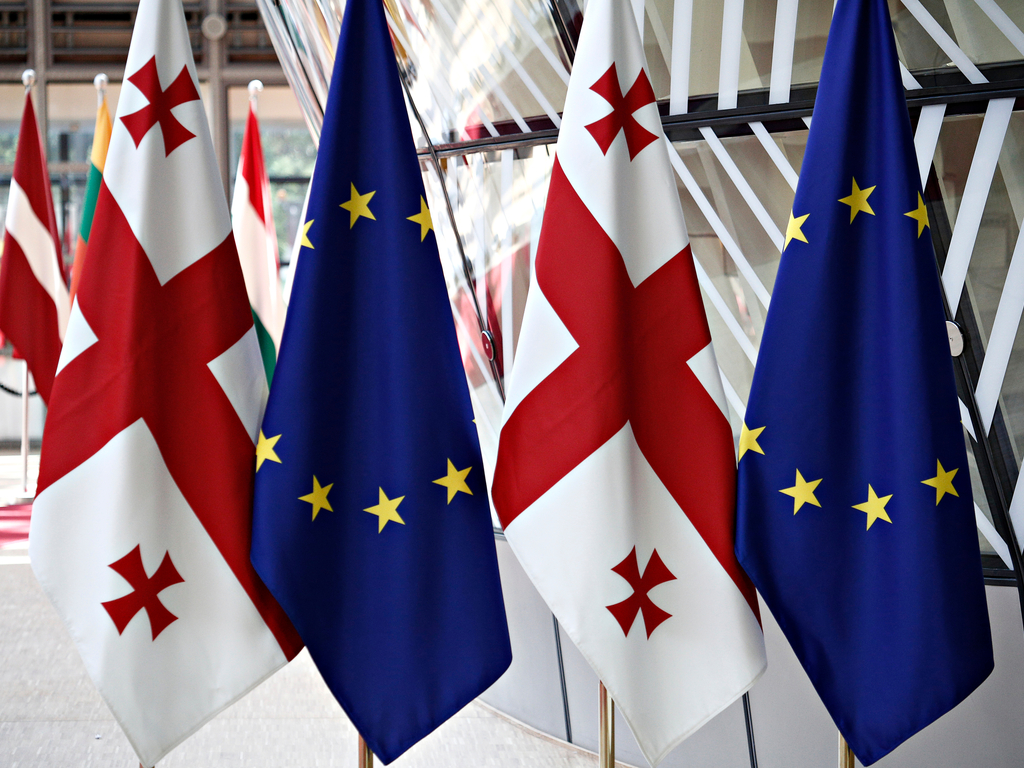Kakha Gogolashvili, Georgian Foundation for Strategic and International Studies
Following Eastern Partnership leaders’ video conference on 18 June, EU leaders identified five long-term goals for the Eastern Partnership policy, which should be approved at a physical summit in March 2021.
First priority: an economy-focused partnership that creates jobs, contacts between countries, and opportunities for youth.
The second is the strengthening of state institutions, respect for human rights, gender equality, and the rule of law.
The third priority is called the “partnership that unites” – digital transformation. The EU will work with partners to modernize the necessary infrastructure.
The fourth priority is sustainability, including climate change and the corresponding response to it.
Fifth, the European Commission will continue to inform about the tangible results that citizens of the EaP countries receive from cooperation with the EU.
StrategEast has interviewed experts from Eastern Partner countries on top priorities of cooperation with the EU. Here are the answers from Georgia.
In which of these areas can be observed the most tangible results of cooperation between the EU and your country now?
For many years, the EU has been supporting and guiding Georgia’s democratic building, so cooperation on issues of the rule of law, good governance, human rights, strengthening of institutions. The mentioned issues are those mentioned in the preamble and the first chapter of the Association Agreement and represent the subject of permanent political dialogue set-up earlier by PCA and later by the AA. Thanks to the intensive EU’s intervention and fruitful cooperation and receptiveness from the Georgian side the democratic performance in the country has been considerably improving since the last two decades. This issue has never lost its importance and it is early to count the problem of democratic change resolved. There are still problems present in all mentioned directions and EU and Georgia, including government, political class, civil society need to work hard on building a better, truly European state.
Economic cooperation between the EU and Georgia, always being a declared priority has never attained to become effective. DCFTA in force now promises expansion of trade relations and an increase in investments. Trade-in goods are gradually increasing and EU-27 is the biggest trade partner for the country, but still counting 26% of the total Georgian trade, which is not a desirable level for a country with European aspirations. New projects of connectivity (TEN-T, Open Air) should decrease a relative physical distance from Europe and certainly have impact on trade and investments. Development of possibilities of the digital trade, also mentioned during the conference, should ease access of Georgian goods to the EU’s internal market.
Climate change and cooperation on environmental issues has also a pressing importance. Transformation of the EaP area and Georgia, in particular, should be arrow streamed towards the green economy, which was not duly represented in EU’s policy/conditionality towards Georgia. It is time to push the country – its urban, agricultural, and energy development – towards the environmentally friendly long-term solutions. Therefore, the accent on sustainable development made by EU’s officials during the videoconference is very timely.
Despite the latest efforts, EU is still very weakly covering its activities in EaP countries. While majority of population in Georgia is not well aware about EU support and EU projects hostile Russian and Eurosceptical propaganda makes thousands of citizens to charge their minds with doubts and negative thinking on EU’s systemic (in)efficiency. So, it is also an important priority, which needs to be well managed.
Are there any priorities for your country that were not mentioned at the videoconference of the EaP leaders?
European Commission mentioned the resilience of EaP countries as an important issue to focus on. Indeed the accent is expected to be put on economic and social dimensions. This is understandable as the most important risks the countries face in the post-covid times relate to economic decline and social hardship, followed by possible political instabilities. Indeed the resilience of the countries towards the hard security risks and even more towards the hybrid threats should not be disregarded and needs to be acknowledged as a priority for EU in its future action.




